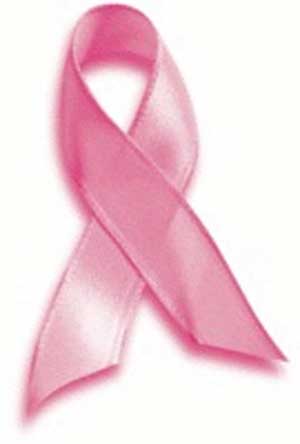By Vera Viner
Yesterday, I was reading the New York Times and one article about breast cancer awareness caught my attention. The author spoke of her breast cancer diagnosis and how, in the past, she felt that a mammogram saved her life. She then went into detail about how mammography has its share of critics and that awareness of this disease is not enough. Early diagnosis may have saved some lives but not as many as large organizations like Susan G. Komen would like us to believe.

The statistics behind breast cancer rates may be deceptive. In the last several years, the amount of women that have passed away from this disease in the United States has hovered around 40,000 annually. The amount of women diagnosed with the disease has only risen – now one in eight women will contract breast cancer in their lifetime!
The New York Times article also positioned the question of how we are treating Ductal Carcinoma in Situ (D.C.I.S.), which is essentially more of a risk factor for breast cancer than the disease itself. D.C.I.S. may never grow or metastasize and many women treated for this disease type may be able to lead a long life and pass away from a completely different sickness.

However, we never know how tumors, even cancerous cells on the nanoscale, will act in the future. This is why we treat D.C.I.S. in similar ways to other types of breast cancer. While it is quite important to perform monthly self-exams and take part in mammograms starting at age 40, we should not wait to be diagnosed with cancer. And, most of all, women should not go through life terrified, feeling that their breasts are essentially pre-cancerous tissues.
While in decades past, women argued with their doctors to enable more patients to elect lumpectomies and less invasive surgeries, today the opposite is taking place. More women are terrified of getting this disease and those with a strong family history are even electing to have a mastectomy to prevent breast cancer. Let me say that again – women WITHOUT cancer are taking part in surgeries to remove their entire breasts.
There are many other, safer ways to prevent this disease. Exercise, plant-based diets, remaining at a healthy weight, and removing harmful chemicals from your environment can all help you obtain a brighter future.

One breast cancer survivor wrote for The Washington Post about her attempts to reduce chances of recurrence. She asked her doctor what she should do. The physician said plainly, “If you want to prevent a recurrence, you need to get your weight into a healthy range and get an hour of vigorous exercise every day.”
The woman laments how she had been an athlete in her younger years, but parenthood, work, and other obligations took up most of her time now, leaving no junctures for exercise. However, countless studies have shown that obese or overweight women are more likely to undergo breast cancer recurrence and those who exercise as little as three hours per week end up much healthier, with a lower rate of recurrence. With a focus to change her life around, the author of this article began to slowly bike her way to work and on errands. In the end, she rode 29 miles per day, four times per week.

Instead of waiting to be diagnosed with a myriad of diseases, women should not sit around but prevent cancer, heart disease, diabetes, and other debilitating conditions. Eating whole foods with a focus on fruits and vegetables as well as playing sports, dancing, biking, or swimming are all potential cures from illness.
No comments:
Post a Comment